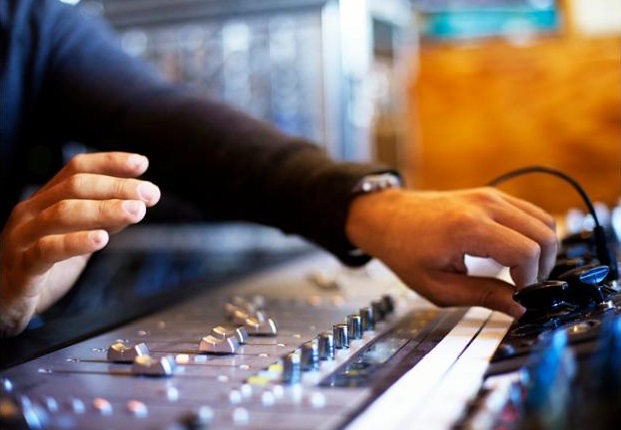chevron_left
-
play_arrow
NGradio So good... like you
share
close
Bringing technology and music together creates a powerful tool for your wellness. Research from the field of music therapy has grown extensively in the last ten years, and is more accessible than ever. Music, that ever-present expression of human emotion, has been shown to improve physical well-being, reduce stress, and many more benefits that we are just beginning to understand. As technology improves, there are more and more ways to access music and use it in beneficial ways that have never been thought of before.
For example, A new app called Humm.ly is the first to combine music therapy and mindfulness techniques. I spoke to Humm.ly founder Joanna Yu about how her app leverages a foundational understanding of music characteristics and their physiological impacts on the human body, and then uses this combination of data, technology, and music therapy research allow you to experience customized positive outcomes for full mind and body wellness. There really is no limit to how music can impact our well-being with such innovation on the market.
Here are a few ways that music, plus technology and research, can help you experience more health, joy, and well-being.
-
- Change Your Mood
No matter what mood you may be feeling throughout the day, music can help. In music therapy, the “iso-principle” is a process of matching mood with music that transitions you to a different mood state. Feeling anxious? Guided music experiences can match your mood and calm your senses. Emotions evoked by music are biologically similar to regularly occurring emotions. Engaging with music in ways that utilize the Iso-Principle has the power to change your mood.
-
- Increase Your Cognition
Your work requires high cognitive demand. Music can support your attention, analysis, and problem-solving skills, but not through the way you may think. It has been suggested that listening to Mozart can increase cognition, however, researchers have not been able to replicate the positive results found in the original study.
Instead, the field of music therapy has found that personal music preference and autonomy are two factors necessary for experiencing cognitive gains. For example, in a study about computer information systems workers and music listening, cognitive performance increased when participants listened to self-selected music for at least 30 minutes throughout their day. Listening to the music you prefer, when you want to, is the key for experiencing increased cognition.
- Reduce Your Pain
Experiencing pain is exhausting and isolating. Many studies about the effects of music on pain indicates that music can reduce pain, minimize emotional distress, decrease use of anesthetics and opioids, and lower elevated vital signs such as blood pressure, heart rate, and respiration.
- Boost Your Performance
Feeling energized is essential for your wellness. Music therapy research indicates that music can increase performance and recovery heart rate for young adults, athletes, and older adults. Aspects of music such as consistent rhythm and predictable harmony, and non-musical associations, such as memories, are factors that contribute to increased performance.
- Soothe Burnout and Bring Peace
Burnout is plaguing the workforce nationwide, no matter the industry. A psychological response to prolonged stress at work, burnout can increase depression and the likelihood of physical illness. Guided imagery and music is one method for reducing chronic work-related stress and subsequent behaviors, such as faster return to work after sick leave.
- Connect with Others
Healthy relationships are the secret to long life. Listening to music with others can be a powerful experience, explained by a phenomenon called entrainment. While playing or listening to music our bodies can physically sync to the rhythm. One example of this is sailors singing together while working at sea. Another example is worship music found in spiritual spaces. By engaging in music together, we become more in-sync with those around us.
- Sync With Technology
Music is evolving, just as we are, and technology is catching up. Humm.ly collects data from Apple HealthKit and other information sources. Leveraging this data, in addition to historical patterns, the app creates customized content to provide an impactful music experience. The power in the analytics comes from understanding how to map an individual’s data to the established physiology behind music therapy and its impact on the brain.
Source: forbes.com
Written by: New Generation Radio
Rate it
Similar posts
ΔΗΜΟΦΙΛΗ ΑΡΘΡΑ
COPYRIGHT 2020. NGRADIO





















Post comments (0)